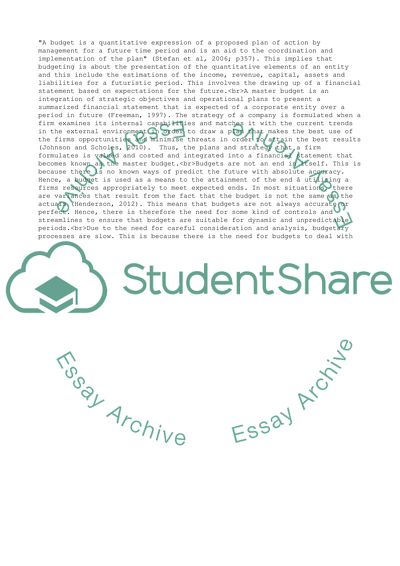Cite this document
(“Management Accounting---Critically discuss the effectiveness of Essay”, n.d.)
Management Accounting---Critically discuss the effectiveness of Essay. Retrieved from https://studentshare.org/management/1629350-management-accounting-critically-discuss-the-effectiveness-of-budgetary-control-in-unpredictable-and-dynamic-environments-your-discussion-should-highlight-potential-solutions-that-might-be-deployed-where-planning-based-systems-fail
Management Accounting---Critically discuss the effectiveness of Essay. Retrieved from https://studentshare.org/management/1629350-management-accounting-critically-discuss-the-effectiveness-of-budgetary-control-in-unpredictable-and-dynamic-environments-your-discussion-should-highlight-potential-solutions-that-might-be-deployed-where-planning-based-systems-fail
(Management Accounting---Critically Discuss the Effectiveness of Essay)
Management Accounting---Critically Discuss the Effectiveness of Essay. https://studentshare.org/management/1629350-management-accounting-critically-discuss-the-effectiveness-of-budgetary-control-in-unpredictable-and-dynamic-environments-your-discussion-should-highlight-potential-solutions-that-might-be-deployed-where-planning-based-systems-fail.
Management Accounting---Critically Discuss the Effectiveness of Essay. https://studentshare.org/management/1629350-management-accounting-critically-discuss-the-effectiveness-of-budgetary-control-in-unpredictable-and-dynamic-environments-your-discussion-should-highlight-potential-solutions-that-might-be-deployed-where-planning-based-systems-fail.
“Management Accounting---Critically Discuss the Effectiveness of Essay”, n.d. https://studentshare.org/management/1629350-management-accounting-critically-discuss-the-effectiveness-of-budgetary-control-in-unpredictable-and-dynamic-environments-your-discussion-should-highlight-potential-solutions-that-might-be-deployed-where-planning-based-systems-fail.


